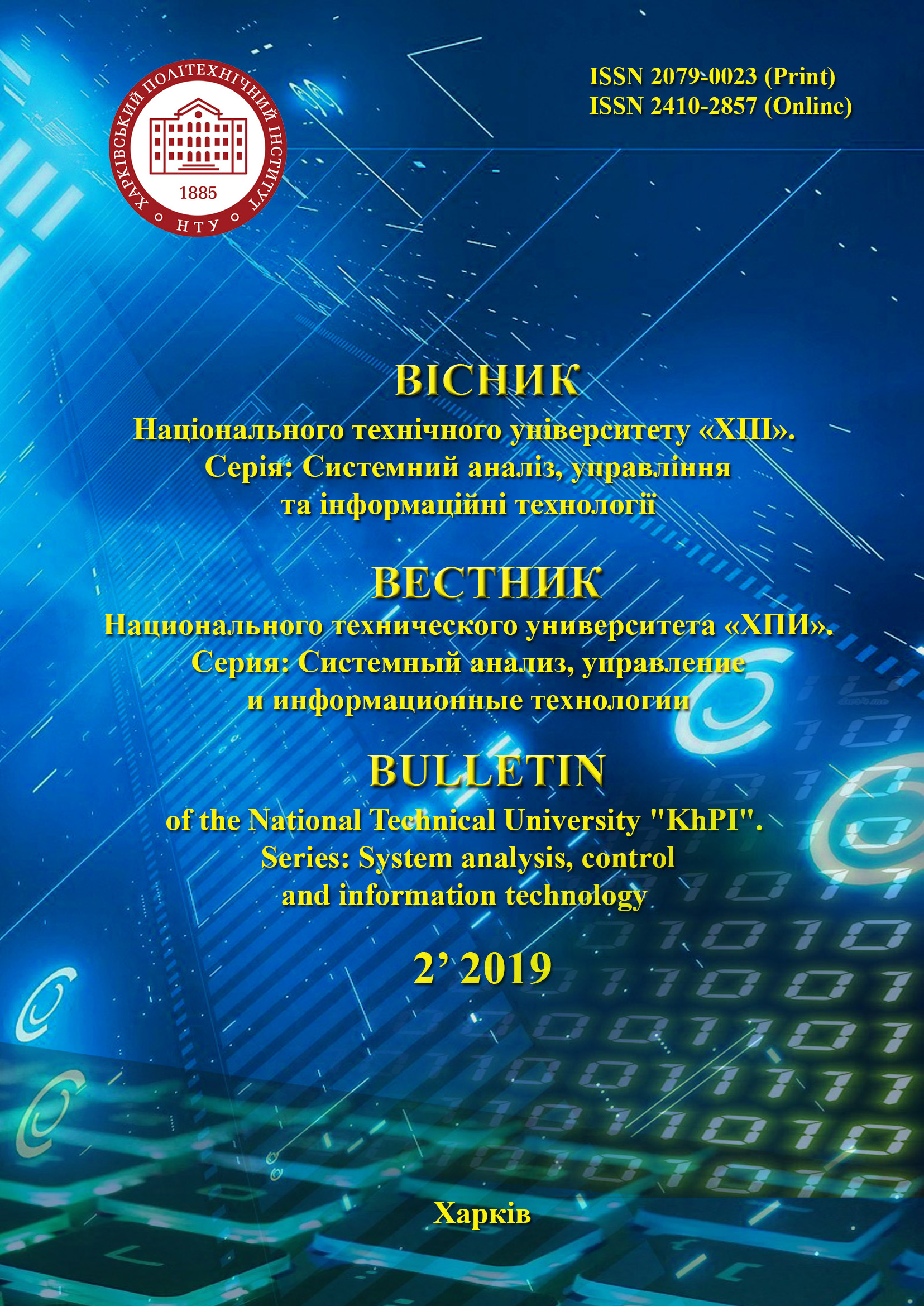SOFTWARE DEVELOPMENT FOR IT TEAM BUILDING BASED ON ESTIMATING CORPORATE CULTURE AND PERSONALITY TYPE
DOI:
https://doi.org/10.20998/2079-0023.2019.02.04Keywords:
IT team, corporate culture, OCAI method, MBTI methodAbstract
The survey of modern approaches of using corporative culture notion in human resource management department at an enterprise, for example, in a company of software development was provided. The overview was showed that there are three main directions of using corporative culture according to its definition. But since corporative culture has not been used as a part of methodology of IT team building. New approach of IT team building based on corporative culture and personality type estimation was presented. The method idea is to define the group of employees based on corporate culture estimation. Then the group is being filtered via personality type to form IT team finally. We believe that IT team includes different positions: software programmers, analysts, software architects, testers, WEB designers, technical writers etc. To solve this problem the overview of experience of using OCAI method and the Myers-Briggs typology is given. The software was developed. The software fully realizes proposed algorithm of interviewing for research as properties of corporative culture as personality type analysis of some employees in IT Company. The software testing was provided for real IT company and to form IT team of a project. The appropriateness of using an assessment of corporate culture is confirmed by the fact that the IT team is not a permanent unit. It always changes depending on the needs for the development of a software product. It changes depending on the need for the implementation of an IT project. But thanks to the assessment of corporate culture, it becomes possible to quickly examine changes in the personal behavior of individual employees and individual IT teams in order to improve the quality of their work within IT projects that are constantly changing as well.References
Grigoreva N.N. Upravlenie rabotoj proektnyh komand. [Project team work management]. Moscow, MIEMP Publ., 2007. 36 p.
Kotler F. Osnovy marketinga [Marketing Essentials]. Moscow, Williams Publ., 2007. 656 p.
Vesnin V.R. Osnovy menedzhmenta: uchebnik [Fundamentals of management]. Moscow, Prospect Publ., 2014. 320 p.
Meskon M.H., Albert M., Hedouri F. Osnovy menedzhmenta. [Fundamentals of Management]. Moscow, Delo Publ., 1997. 704 p.
Thompson, A.A., Strickland, A.J. Strategicheskij menedzhment. Iskusstvo razrabotki i realizacii strategii [Strategic management. The art of developing and implementing strategies]. Moscow, Banks and stock exchanges, Unity Publ., 1998. 576 p.
Solomanidina T. O. Organizacionnaya kultura kompanii: Ucheb. posobie [Organizational company culture]. Moscow, Infra-M Publ., 2011. 624 p.
Shane E. Organizacionnaya kultura i liderstvo [Organizational culture and leadership]. Saint Petersburg, Peter Publ., 2002. 336 p.
Masilova M.G. Organizacionnaya kultura vuza: netradicionnye podhody k vospriyatiyu i izucheniyu [Organizational culture of the university: non-traditional approaches to perception and study] Territory of new opportunities. Bulletin of the Vladivostok State University of Economics and Service. Vladivostok, VSU Publ., 2015, no 1, pp. 52–57.
Kim S. Cameron, Robert E. Quinn. Diagnostika i izmenenie organizacionnoj kultury [Diagnosis and change of organizational culture]. Saint Petersburg, Peter Publ, 2001. 320 p.
Jung K.G. Psihologicheskie tipy [Psychological types Saint Petersburg, Azbuka Publ, 2001. 288 p.
Isabel Briggs Myers. Vvedenie v tipologiyu [Introduction to typology]. Kyiv, Europenian Pibl., 1998. 23 p.
Peter Druker. Effektivnoe upravlenie predpriyatiem [Effective enterprise management]. Moscow, William Collins, 2018. 224 p.
Downloads
Published
How to Cite
Issue
Section
License
Copyright (c) 2019 Bulletin of National Technical University "KhPI". Series: System Analysis, Control and Information TechnologiesAuthors who publish with this journal agree to the following terms:
- Authors retain copyright and grant the journal right of first publication with the work simultaneously licensed under a Creative Commons Attribution License that allows others to share the work with an acknowledgement of the work's authorship and initial publication in this journal.
- Authors are able to enter into separate, additional contractual arrangements for the non-exclusive distribution of the journal's published version of the work (e.g., post it to an institutional repository or publish it in a book), with an acknowledgement of its initial publication in this journal.
- Authors are permitted and encouraged to post their work online (e.g., in institutional repositories or on their website) prior to and during the submission process, as it can lead to productive exchanges, as well as earlier and greater citation of published work (See The Effect of Open Access).


